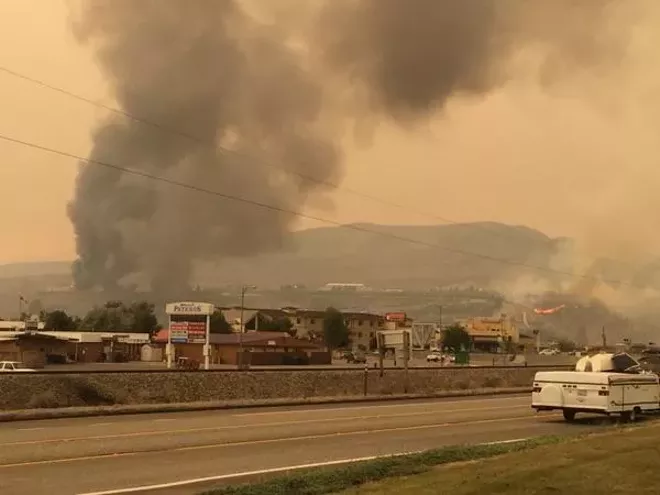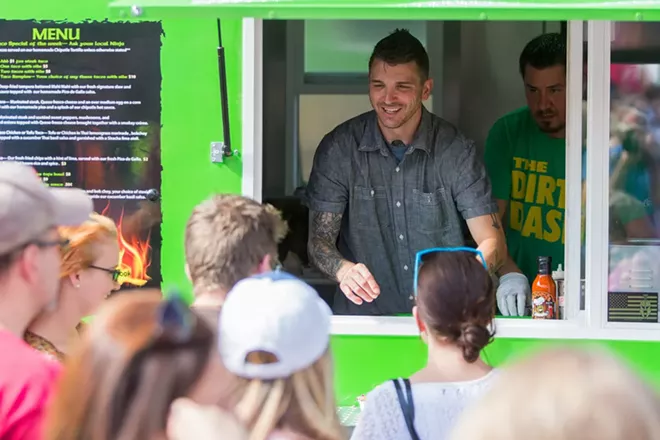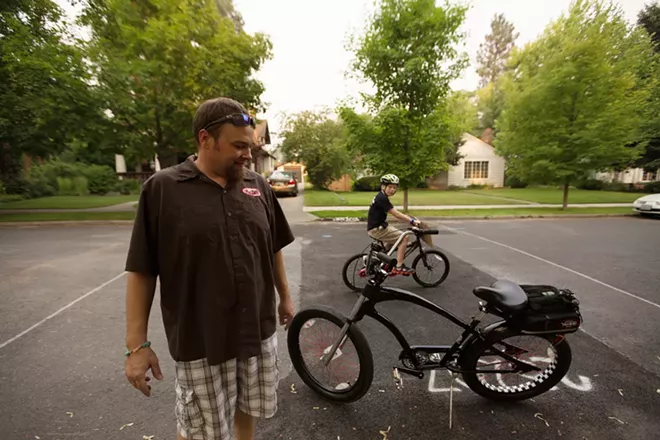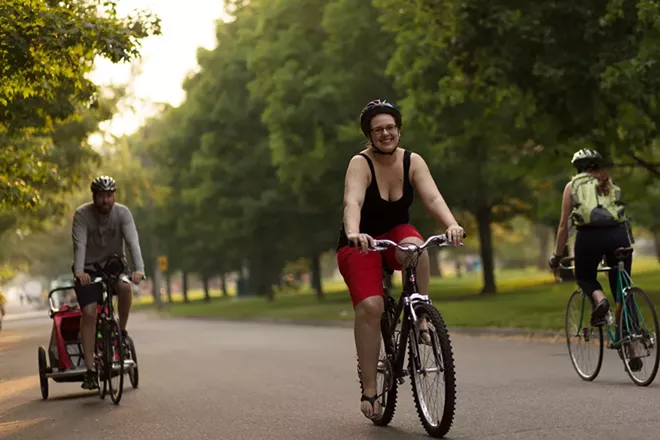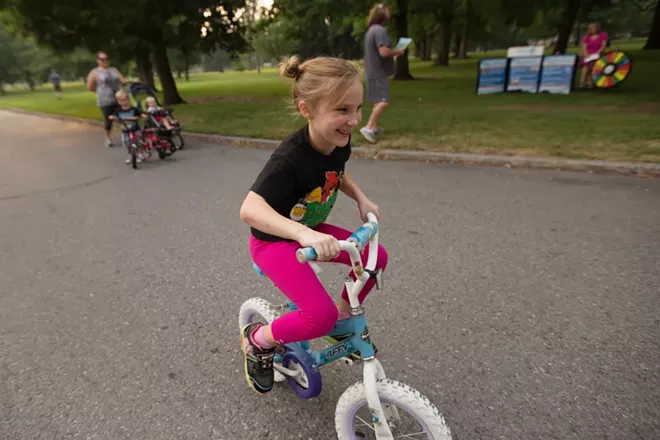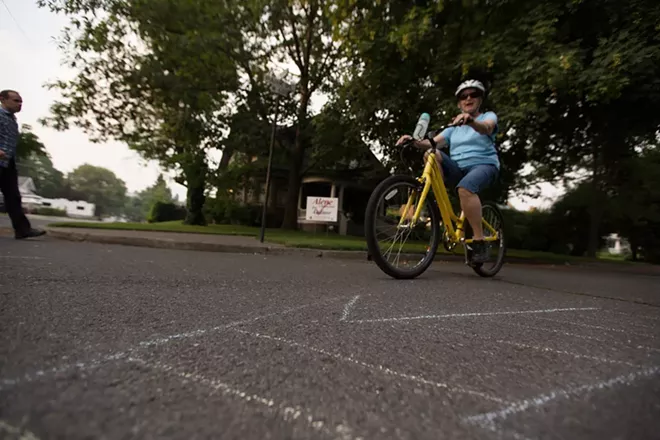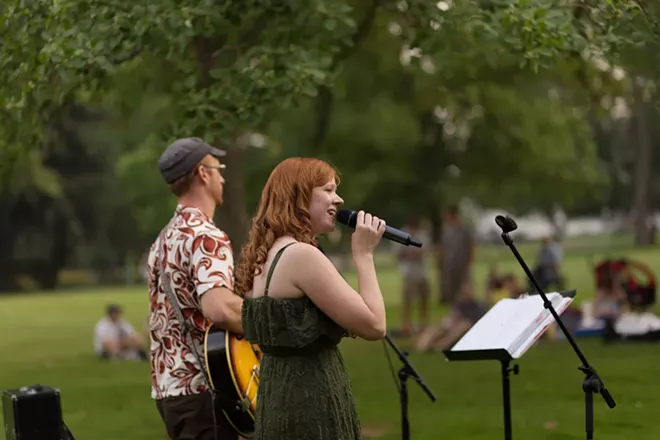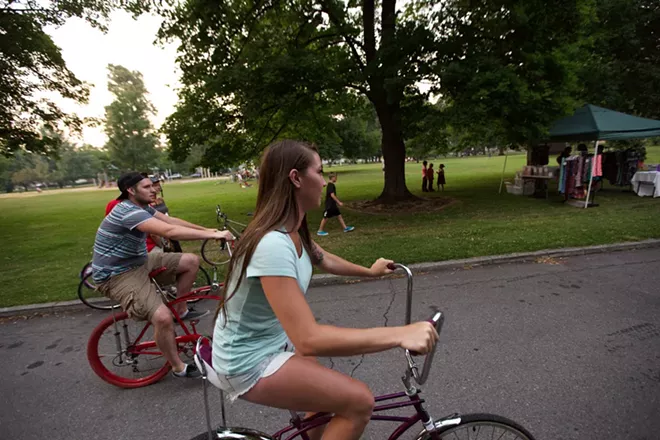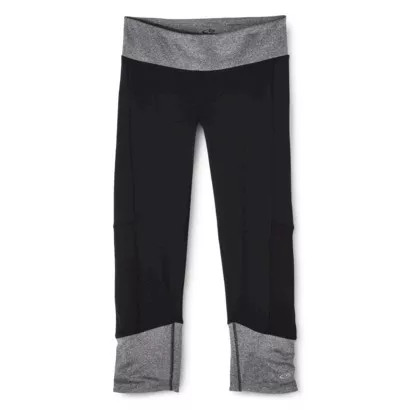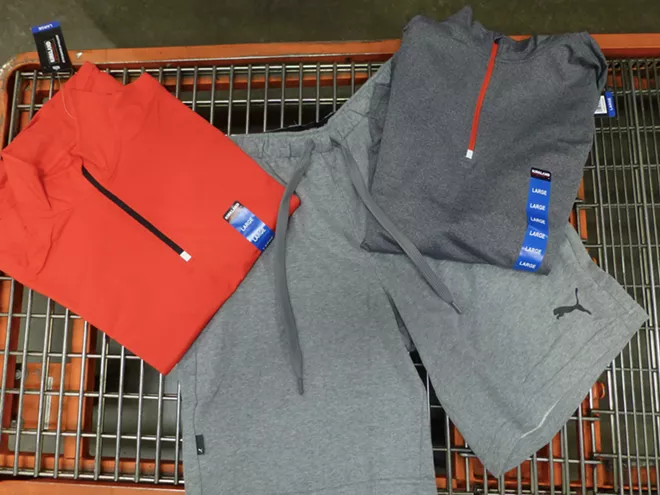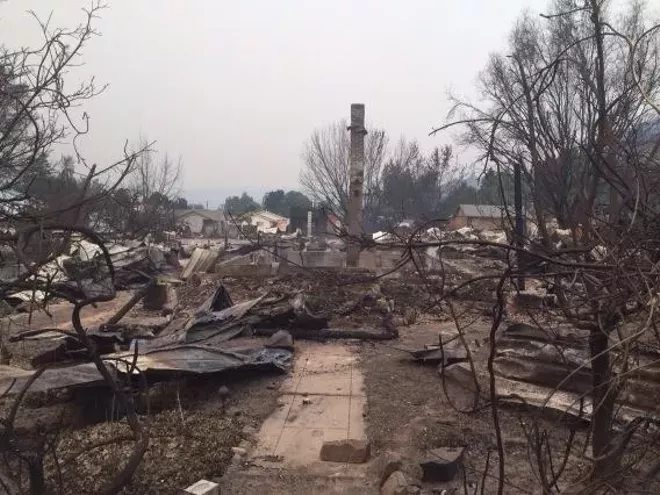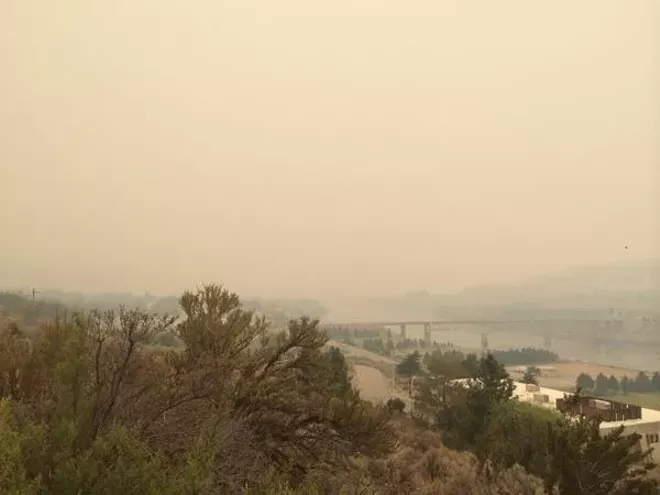Monday, July 21, 2014

Calling all humanitarians, philanthropists, artists, environmentalists and activists: Who do you think is making a positive difference in the Inland Northwest?
We're currently looking for nominees for our fifth annual Peirone Prize — a cash reward recognizing passionate, local folks who have dedicated their lives to the service of others. Previous winners include Jamie Borgan the program director of New Leaf Bakery; Virla Spencer, the outreach coordinator at Center for Justice; and Brent and Amy Hendricks, founders of Global Neighborhood. One of our goals is to inspire young people to get involved in our community, so we're especially looking for people under or around the age of 35.
Know anyone who deserves our support? Please send us the names of the people you'd like to nominate to giveguide@inlander.com no later than Friday, Aug. 1. In your email, include their ages and a brief explanation as to why they deserve recognition. We'll choose three winners based on your responses and showcase their contributions to the community in our annual Give Guide issue on Aug. 28.
Tags: give guide , peirone prize , Culture , Arts & Culture , Image
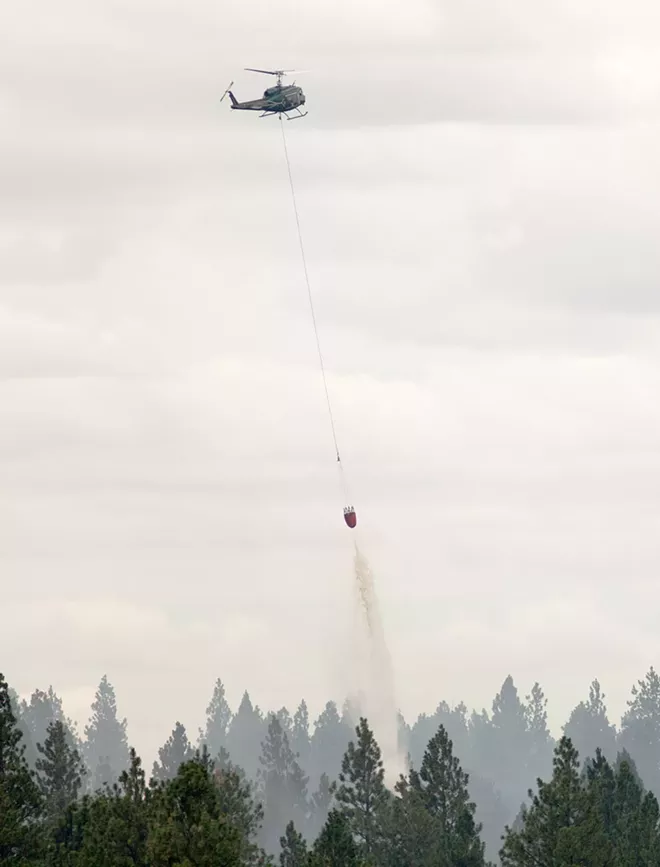
The hazy, smoky air still makes my stomach curdle with fear.
I was 4 when the regional disaster known as Firestorm torched the Spokane area. On Oct. 16, 1991, heavy winds downing power lines sparked more than 90 separate fires around the Inland Northwest, burning more than 100 homes and blackening the land all around. I vividly recall Firestorm’s terrifying uncertainty, and now view it as one of the most impactful events of my childhood, growing up on 20 wooded, rural acres in Stevens County.
After the first flames ignited and sent embers flying, my parents quickly packed up our valuable belongings — antique furniture, family heirlooms, photographs and important documents — and rented a storage unit in Spokane. My mom packed clothing and we made the short drive to my grandparent’s 80-acre farm above our home on a hill. It was safer there, with more routes out if the fire moved in. One night during the fires, my dad took me outside, lifting me up on his shoulders. There, in my striped nightgown, I saw the mountain vista in front of our homes glowing with orange flames against the black night sky.
We were lucky. The firestorm burned for days all around the region, but our land and our homes remained untouched. It was the first memory I’d have of many more fires to threaten our rural community. Each one filled me with more terror than the last. Just as anxiety-causing were summer’s hot, dry spells, lightning storms and windy days that all meant high fire danger. The fires alone didn’t make fear course through my body, but the materialistic thought of losing everything in a fire’s wake.
As residents across the Inland Northwest woke up this past Friday morning to a brown sky blocking out the rays of a blood red sun, the dense ashy air left a fine, grayish-black powder on everything it touched. Street lights stayed on long past sunrise, and the world was cast in an ominous, yet eerily beautiful, goldish glow. These remnants of wildfire stirred up my long-dormant feelings of dread. I tried to imagine the emotions of residents of Central Washington — the people in Brewster and Pateros who lost everything in the still burning Carlton Complex fire. In place of a desire for empathy was something stronger — guilt. Guilt that here I was, conjuring up old childhood fears of losing my home to a raging wildfire when they just had.
When natural disasters — tornadoes, hurricanes, mudslides, earthquakes, tsunamis and forest fires — strike, our collective reaction is to consume breaking news reports. We become almost morbidly fascinated by the images and stories of destruction fed to us, all so accessible on our social media accounts. At the same time we ache for the losses of others due to what’s largely attributed a random event. The Carlton fire was sparked by lightning; the whims of changing winds paired with the intense summer heat propelled it toward towns with little warning.
Every region of the world comes with its own set of natural threats. Those who choose to call these places home do so with some understanding of the chance they might be affected by a mostly unpredictable disaster. But until one happens to or close to us, that probability doesn’t dominate our thoughts.
Most of us will never lose our homes to wildfires. But when we see it happen on such a tragically large scale like the Carlton Complex fire, we’re reminded of our vulnerability to the odds and also comforted by it. Homes can be rebuilt and things replaced, but the scars of any disaster will live on in the landscape and its victims memories forever. ♦
Tags: wildfire , carlton complex , Comment , News , Image
Firefighters continue to battle the Carlton Complex fire and the Watermelon Hill fire outside of Cheney. You can help victims of Washington's forest fires by donating to the Red Cross or other efforts listed here. (SR/KXLY/Wenatchee World)
A body was found on the shore of Lake Coeur d'Alene early Saturday. Police have not yet identified the victim. (CDA Press)
Conservatives on the Spokane City Council are worried the liberal majority will pick another liberal to fill departed Councilman Steve Salvatori's seat. (SR)
Some people who've bought insurance through Washington's state exchange are still having issues with the site. (Seattle Times)
ELSEWHERE
Death and destruction continue in Israel and the Gaza Strip. (NYT)
A friend of Boston Marathon bombing suspect Dzhokhar Tsarnaev has been convicted of obstructing justice. (NPR)
Separatists in eastern Ukraine have agreed to hand over the black boxes from a Malaysian plane that was shot down and allow investigators into the area. (WaPo)
China has suspended operations at the meat supplier used by Chinese branches of McDonald's and KFC amid accusations the supplier repackaged expired meat products. (BBC)
Tags: morning briefing , News , Image
Sunday, July 20, 2014



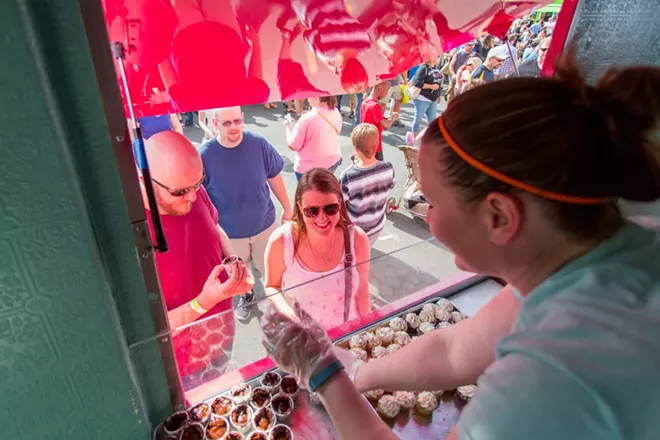
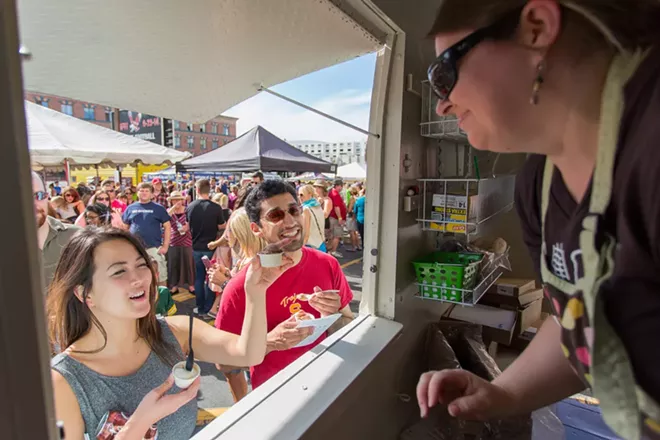
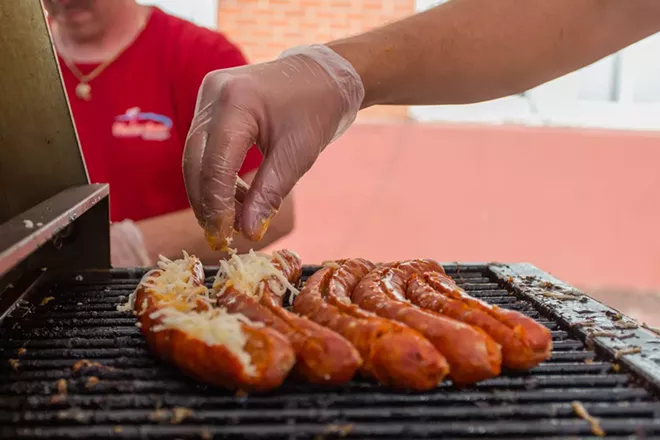
Saturday, July 19, 2014
Not yet half way into summer vacation, families like mine are starting to feel the pinch of added expenses, restless kids and less income. In fact, the mental stress of financing the months of summer can become so all-consuming that our relationships turn tense and we risk losing the enjoyment of the season.
Here are a few ways I’ve tried to make or save money to fund that kids’ camp, movie night, Silverwood excursion, evening date, camping trip or kayak rental when I’m empty in the pockets:
1. Dig Deeper. I found an extra $25 just by going through winter coat pockets, looking under the seats in my car and digging in the sofa. That’s dinner or a movie for two.
2. Babysit Pets. My 12-year-old would love to own and breed all kind of animals, but I am not a big pet fan. Our compromise is that he can babysit non-vicious dogs and cats at our home. He’s already earned enough to pay for two Silverwood trips, snacks included.
3. Sell Your Stuff. I admit, I have no patience for sitting in the sun all day running a yard sale or managing ads on craigslist, but I am trying out Tradesy.com currently for selling clothes and have found some of the local shop-and-swap networks to be quite effective.
4. Use Your Body. I’m not suggesting organ donation or red-light-district activity, but plasma donors are always needed here in Spokane, and there are medical research teams looking for test subjects for products you might already be using, like allergy meds or nasal spray.
5. Rent What You Own. I’m not a big fan of having random roommates, although we do host international students on occasion. But, renting out a garage or toolshed for storage is less invasive to your privacy and can add enough supplemental monthly income to cover a road trip by fall.
6. Tap Your Talents. Making a summer camp out of your skill set, teaching a few private (art, music, dance) lessons, or teaming up with a friend to trade your expertise are all great ways to turn a profit. I am trading art lessons for guitar lessons and have also taught with Spokane Art School and other organizations on a class-by-class basis.
7. Be Exotic. Yes, this area has its limits, but there are some fun ways to explore and express in Spokane. I participated as a vendor in the new outdoor art event, Bazaar, and will be spicing up things in August as a model for the Blackwood Art Clothing line at Runway Renegades. Participating in events that pay in excitement or networking can bring fresh ideas to your life.
8. Go Hastings. Buy-backs aren’t hugely lucrative, but if you have upgraded to BluRay or no longer have an Xbox 360, why keep the archaic stuff around? Entertainment and gaming stores usually buy back or trade consoles and games.
9. Pawn It. Sometimes you will get just as much or more for your equipment, electronics, musical instruments or jewelry at a pawn shop as you will sitting in the hot sun (or rain) all day running a yard sale. My kids pawned enough of their outdated items to purchase a couple hundred dollars of new entertainment gear.
10. Stop Paying Bills. Maybe you don’t really need that iPad on your phone line anymore or aren’t using Hulu Plus or tanning and going to the gym during the summer. For some companies, you can temporarily put your services on hold, revise your plan or eliminate your membership altogether. I saved about $85 a month by revising my services this summer. ♦
Rachel Dolezal, formerly of the Human Rights Education Institute in Coeur d'Alene, is an award-winning artist and activist who teaches courses in art, Africana history and culture at area universities.
Tags: economy , parenting , Comment , Culture , Arts & Culture , Image


Tags: news , culture , photos , bicycle , walk , bicycling , walking , summer , summer parkways , corbin park , emerson-garfield , Arts & Culture , Image
Friday, July 18, 2014
With an abundance of trend-focused gyms popping up in the region, it’s evident the latest national fitness trends have made their way here. From CrossFit and hot yoga, to spinning and barre classes, there are so many options to stay in shape. Along with this workout culture comes another type of trend — fitness fashion.
With the presence of high-end (i.e. $80 yoga pants) fitness apparel brands Lululemon and Athleta in downtown Spokane, these stores are also now influencing local trends in fitness fashion that have become popular outside of the gym. But what do active, fashion-conscious people wear if they’re trying to look on-trend while maintaining a budget?
We shopped around the city to prove that it’s possible to find stylish and affordable workout wear. Check out our list of finds below.
1. Target
Target is an obvious destination for affordable clothing, and it always carries essential staples for any workout wardrobe. Target’s athletic clothing line, C9 by Champion is made by the acclaimed exercise brand Champion. This means the clothing is well made and trendy enough to rival other high-end athletic brands without breaking the bank. The brand’s fitness clothing can be found in store or online, and prices max out at about $40. For additional discounts and coupons at Target consider downloading their mobile coupon app, Cartwheel. You never know what daily discounts will be offered.
2. TJ Maxx
This popular bargain chain is constantly circulating new products and top workout brands ranging from Reebok and Adidas to Nike and UnderArmour at up to 60 percent off. Also, a summer sale is currently running both in stores and online, with merchandise at up to 75 percent off. TJ Maxx is also new to the online world, launching its shopping website last year for those customers who hate the hassle of digging through disorganized racks.
3. Plato’s Closet
The next (and sort of unlikely) destination was Plato’s Closet. For most of the year, Plato’s Closet is a fabulous place to sell and find gently-used clothing by popular youth-oriented brands such as American Eagle, Hollister and Express. During the summer months, though, the store switches things up and accepts more active wear. The franchise's store on North Division has an athletic clothing display right now with brands like Nike, Adidas and Danskin. Prices range from $10-$15.
4. Costco
When you think of Costco, most shoppers probably think of food and free samples. But in the middle of the store Costco is always displaying many top workout-wear brands. Tanks, jackets, pants, sports bras, shorts and socks of brands like Nike, Puma and Reebok can often be found. Costco also has its own Kirkland brand of trendy exercise apparel. With Costco, you never know what you'll find when you stop in since its stores are always bringing in new brands. When we stopped by, Costco had Puma workout wear for men and women.
5. Northwest Christian Thrift
Last, we decided to challenge ourselves and see if it’s possible to find trendy workout wear at local thrift stores. Surprisingly, after a bit of digging, we found that it is. Northwest Christian Thrift on North Ash at Five Mile has an entire rack dedicated to workout wear. Even though most of it screams 80’s, with a little bit of perseverance you can find a few pieces, with prices ranging from $1-$3 per item. Northwest Christian Thrift also offers 15% off student discounts on Wednesdays.
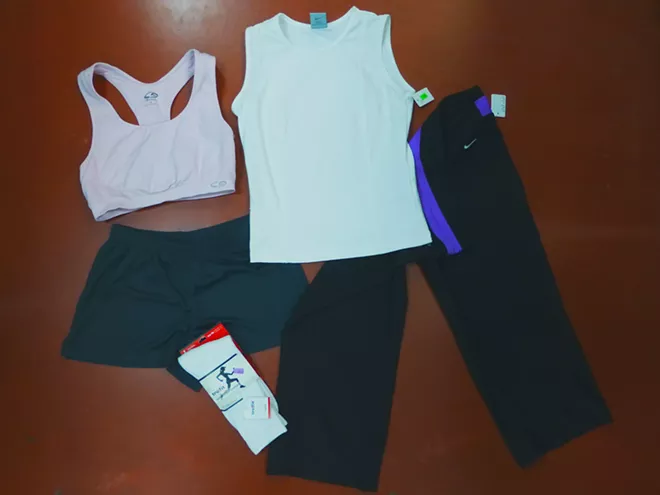
While our shopping trip offers several examples of affordable workout wear, you can find reasonably-priced exercise clothing just about anywhere, especially when keeping an eye out for sales. Other retailers with great workout apparel lines include Gap and Old Navy, Athleta’s sister brands. Also check department stores, like JC Penny. By signing up for higher-end store's email lists, it's also easy to find coupons and updates about online and in-store promotions.
Also watch for discounted summer workout wear, as many stores are already starting to clear out merchandise to make way for fall clothing.
Tags: Culture , Shopping , Arts & Culture , Image
Bonnie “Prince” Billy will fill The Bartlett with his indie rock/Americana/folk sounds tonight. Having previously recorded under his real name — Will Oldham — along with Palace Brothers and Palace Music, he's sure to bring the same warbling voice Johnny Cash chose to cover back in 2000. David Ferguson will be opening the show at 8 pm and tickets are still available for $28.
After all touring and playing in separate bands, a trio of brothers from the Inland Northwest now make music together as Flying Mammals. Their 7:30 pm show is at the Jacklin Arts & Cultural Center in Post Falls and tickets are $15.
SATURDAY
Schweitzer Mountain Resort is hosting its annual Mountain Music Festival with free music beginning at noon. Local favorites Cedar & Boyer are followed by Seattle's Pretty Broken Things, the Marshall McLean Band, and finally the Seattle-based singer-songwriter who played in Sandpoint last weekend, the Ian McFeron Band, at 6 pm.
Featuring all local music, the Viking Bar's All Age Rage Volume II features the Nixon Rodeo, the Lion Oh My, Helldorado and many other bands, happening both Saturday and Sunday. One-day or two-day passes are available for these outdoor concerts.
Rocky Votolato's once acoustic emo sounds now features intricate guitar riffs and soothing harmonies to create his extremely honest songs. Kevin Long and Bristol are opening his show at the Bartlett at 8 pm. The show is $15.
Spokane rockers Bullets or Balloons are releasing their new 7-inch EP this weekend, with a show at the Baby Bar with Kramer and Team Growl. Music starts at 9:30 and it's free.
Tags: Music , This Weekend in Music , Image , Video
So, there is still time to get your work on the walls at Terrain. Submissions close at midnight on Aug. 1, so head on over to the Terrain site to learn what you need to do.
Also, all the art is for sale. Last year's show saw almost $8,000 in sales in that one night.
Here's more about submission guidelines and other cool Terrain info we mentioned way back in May when, uh hum, you could have got your submission in.
Terrain is scheduled for Friday, Oct. 4 at the Music City Building.
Tags: Terrain , Visual Arts , Arts , Image
